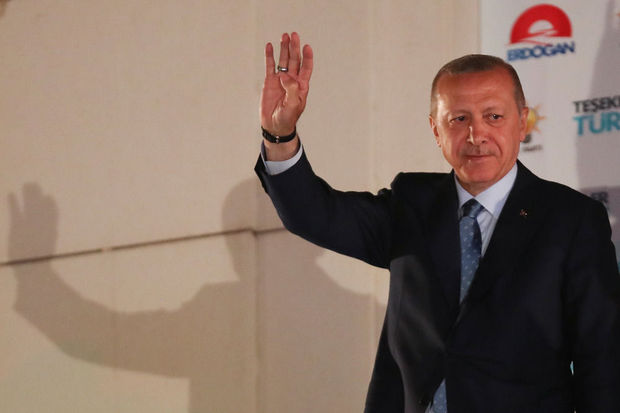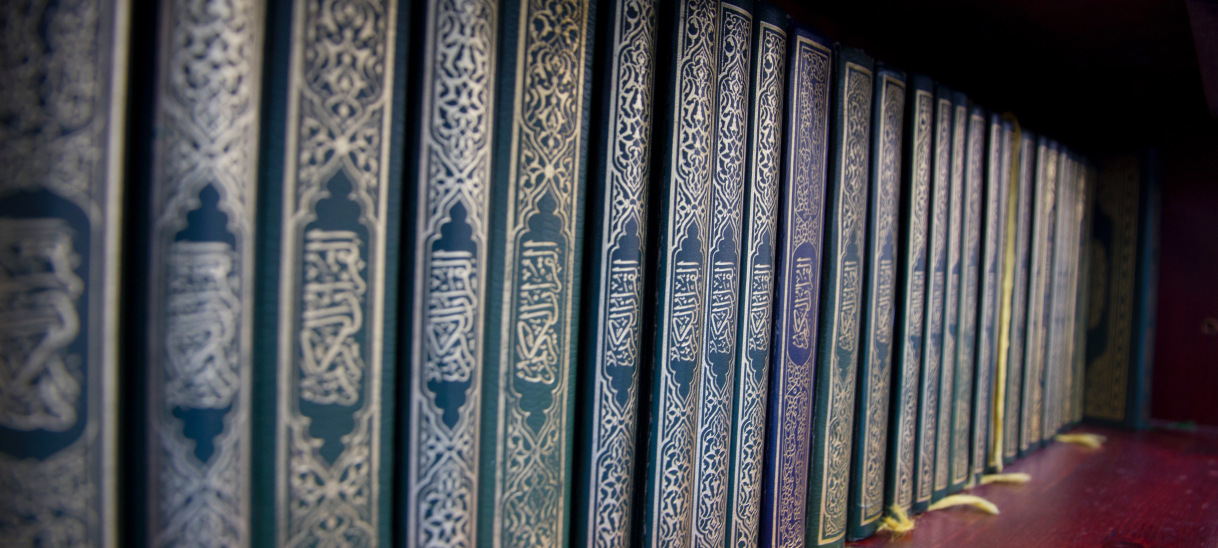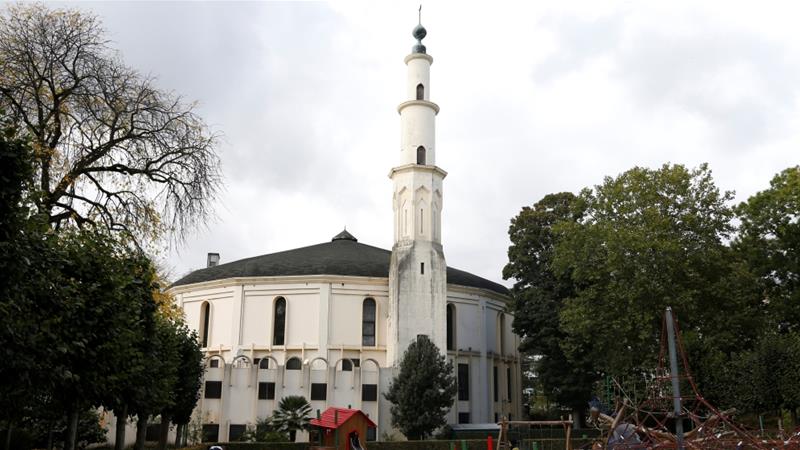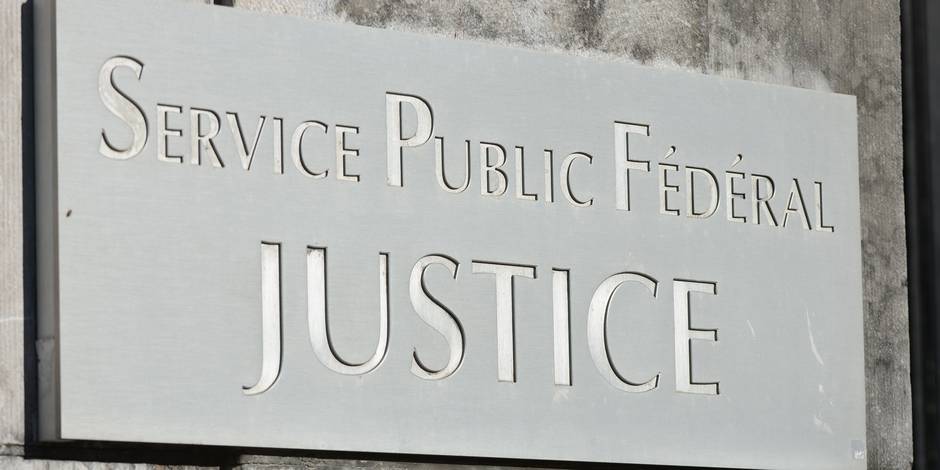ANTWERP, Belgium – Filip Dewinter, a boyish man in a dark blue suit, bounds up two flights of steep stairs in his political party’s 19th-century headquarters building where posters show a Muslim minaret rising menacingly above the Gothic steeple of the city’s cathedral. “The radical Muslims are organizing themselves in Europe,” he declared. “Other political parties, they are very worried about the Muslim votes and say let’s be tolerant, while we are saying – the new political forces in Europe are saying – no, we should defend our identity.” From the Freedom Party in Austria to the National Front in France to the Republicans in Germany, Europe’s far right has made a comeback in recent years, largely on the strength of anti-immigration feelings sharpened to a fear of Islam. That fear is fed by threats of terrorism, rising crime rates among Muslim youth and mounting cultural clashes with the Continent’s growing Islamic communities. But nowhere has the right’s revival been as swift or as strong as in Belgium’s Dutch-speaking region of Flanders, where support for Mr. Dewinter’s Vlaams Belang, or Flemish Interest, has surged from 10 percent of the electorate in 1999 to nearly a quarter today. Vlaams Belang is now the strongest party in Flanders, with support from a third of the voters in Antwerp, the region’s largest city. Many people worry that the appeal of antiIslamic politics will continue to spread as Europe’s Muslim population grows. “What they all have in common is that they use the issue of immigration and Islam to motivate and mobilize frustrated people,” said Marco Martiniello, a political scientist at the University of Li_ge in the French-speaking part of Belgium. “In Flanders all attempts to counter the march of the Vlaams Belang have had no results, or limited results, and no one really knows what to do.” Fear of Islam’s transforming presence is so strong that even many members of Antwerp’s sizable Jewish community now support Mr. Dewinter’s party, even though its founders included men who sympathized and collaborated with the Nazis during World War II. Many of those supporters are Jews who feel threatened by a new wave of anti-Semitism emanating from Europe’s growing Muslim communities. The friction is acutely felt in central Antwerp, where the Jewish quarter abuts the newer Muslim neighborhood of Borgerhout. There, Hasidic diamond traders cross paths daily with Muslim youths, for many of whom conservative Islam has become an ideology of rebellion against perceived oppression. Israeli-Palestinian violence produces a dangerous echo here: anti-Israel marches have featured the burning in effigy of Hasidic Jews, and last June a Jewish teenager was critically wounded in a knife attack by a group of Muslim youths. “Their values are not the right values,” said Henri Rosenberg, a Talmudic scholar and lawyer who is an Orthodox Jew, speaking of the Muslim community. Though he is the son of concentration camp survivors and his grandparents died in camps, he campaigned on behalf of Vlaams Belang, then named Vlaams Blok, in regional elections last year. As the right rallies beneath an anti-Muslim banner, European Muslims themselves have become increasingly politically engaged. The community is far too divided along religious, racial and national lines to present a unified political force, so most of Europe’s Muslim politicians have allied themselves with socialists or other left-leaning parties. But radical Muslims are also getting involved, and in many ways they are helping to validate the fears that keep parties like Vlaams Belang alive. Behind the wooden door of a brick Brussels town house, Jean-Fran_ois Bastin, 61, a Belgian convert to Islam, holds court before a steady stream of Islamic activists. His fledgling Young Muslims Party is one of the new groups aggressively pursuing pro-Muslim agendas in Europe. He calls Osama bin Laden “a modern Robin Hood,” and the World Trade Center attacks “a poetic act,” “a pure abstraction.” His 23-year-old son is in jail in Turkey on charges that he was involved in the bombings there that killed 61 people in November 2003. But Mr. Bastin argues that his son’s troubles are evidence that Muslim youths feel politically excluded in Europe. He says political engagement is an antidote to militancy. “There is deviance because people don’t find their place here,” he said, a long, hennaed beard falling over the front of his Arab-style tunic, his graying hair tucked beneath a turban fashioned from a multicolored head scarf. “If we deny that political voice that can judge and determine what is good for Muslims, from the point of view of their religion and their citizenship, their children are going to look for adventures elsewhere.” Mr. Bastin, who converted to Islam in 1972 after a spiritual quest led him to Morocco, dismisses the far right’s fears of an Islamization of Europe, even if he does dream of an Islamic theocracy governing the Continent someday. “Were not talking about Shariah now,” he said, referring to the Islamic legal code that fundamentalist Muslims believe should be the foundation of society. “Were talking about Belgian Muslims being recognized on the same footing as other confessions and ideologies.” In many ways radical Islamists like Mr. Bastin are holding Europe’s broader, moderate Muslim population hostage, attracting attention disproportionate to their numbers. “You have, in the current context, people who feel legitimized being anti-Muslim,” said Mr. Martiniello, the political scientist. He cited the case of a Belgian man who had received death threats for employing a woman who wore a Muslim head scarf. Many of the extreme right’s supporters see Islam’s growing European presence as the latest, most powerful surge of a Muslim tide that has ebbed and flowed since the religion spread to the Continent in the eighth century. They warn that lax immigration policies, demographic trends and a strong Muslim agenda will forever alter Europe. The Continent’s Muslim population, now 20 million, grew from a postwar labor shortage that was filled with workers from North Africa and Turkey. By the 1980’s economic malaise and rising unemployment had created tension between the largely Muslim immigrants and the surrounding societies. But family reunion policies, which granted visas to family members of immigrants already in Europe, fueled another, more sustained wave of immigration that continues today. “We were very na_ve,” Mr. Dewinter said of the liberal policies. He called tolerance Europe’s Achilles’ heel and immigration Islam’s Trojan horse. The trend is even more distressing to the far right when considering the low birthrate of Europe’s traditional populations and the likelihood that more workers will need to be imported in the coming decades to broaden the tax bases of the Continent’s aging societies. Already about 4,000 to 5,000 Flemish residents are leaving Antwerp every year, while 5,000 to 6,000 non-European immigrants arrive annually in the city, Mr. Dewinter said. Within 10 years, he predicts, people of non-European backgrounds will account for more than a third of Antwerp’s population. “It’s growing very, very fast,” Mr. Dewinter said. “Maybe that will be the end of Europe.”
Fear of Islamists Drives Growth of Far Right in Belgium






